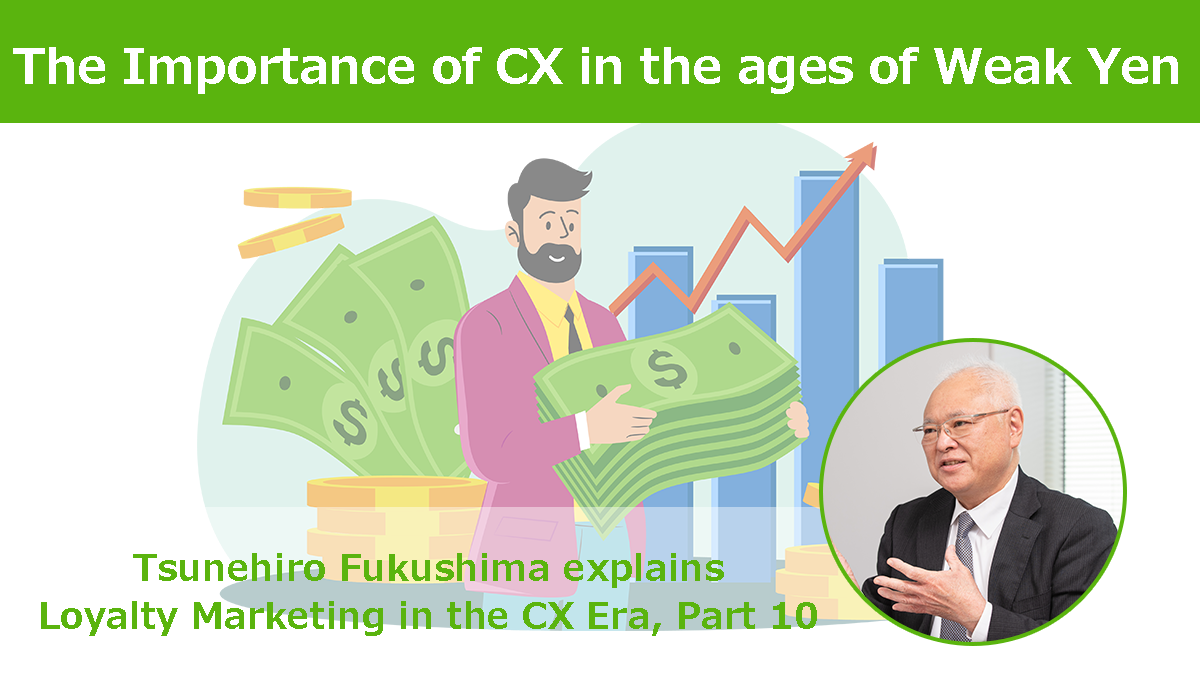There is a growing worldwide movement toward WITH Corona to restore life before the Corona disaster. Against this backdrop, the US policy of raising interest rates to curb inflation and Japan’s policy of easing interest rates have led to a historic sell-off of the yen against the dollar in the foreign exchange market, resulting in a dramatic depreciation of the yen. The weak yen has also caused the cost of imported fuels and materials to soar, leading to higher prices for many commodities, which has been very damaging to household budgets.
For companies, it is difficult to make price appeals, which is one of their marketing strategies. In these times, how can companies effectively market their products and services?
The criterion by which consumers purchase products is said to be the relationship between the value of the product and its price. Consumers will not purchase a product if they feel that the value and price are not commensurate. Naturally, as prices rise, the price of goods and services will rise, and the number of purchases will decrease. Therefore, marketing that increases the value of the product is necessary to motivate consumers to purchase the product as they have in the past.
What exactly is the value of a product or service that consumers base their decisions on? This can be roughly classified into three categories.
Functional value and sensory value are values for the function and appearance of products and services, and consumers are less likely to value these differences in today’s increasingly commoditized world. The most ambiguous of the three criteria, but sometimes important, is emotional value. The decisive factor in emotional value is loyalty. It is the emotional value that customers experience when they use a product or service, and it is a very important value that companies should pursue now that price competition has become more difficult. Customer loyalty varies from brand to brand and product to product, with Apple products, for example, often cited as an example. Recently, with the growing awareness of environmental issues such as SDGs, companies that focus more on social contribution activities than on the differentiation of their products themselves are even supported. Customers who become attached to a product or service and find value in it are less likely to lose their desire to purchase it, even if the price is higher, and this trend continues over the long term.
In his marketing theory, Kotler states that building loyalty leads to the long-term appeal of a product or service, even if the product is overpriced. In commodity markets, where functional and sensory values are difficult to differentiate, the only way is to eventually move toward price competition. As a result, no company can make a profit, and the market is said to be a graveyard. Therefore, it is necessary to create products and services through loyalty that do not affect the price and increase emotional value.
It is precisely at times like today, when the yen is strong and raw material costs are rising, that the most important thing is to promote integrated CX and a true loyalty marketing strategy.
